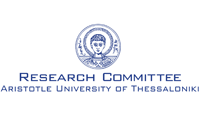Konstantinos Hatzitheodorou
A.U.Th
This email address is being protected from spambots. You need JavaScript enabled to view it.
Abstract
Being a professional translator involves a high degree of cultural and therefore linguistic competence required for translation. Translators are continuously dealing with localization issues such as the localization of dates, currencies and/or phraseologisms. However, how deep is the translators’ knowledge in terms of cultural reception of the message in order to meet all these specific cultural needs? This study aims to investigate the translators’ competency in attributing translation units in the IT field. More specifically, we used online software texts, user manuals, user instructions etc. The survey involved 20 translation trainees who were asked to localize into totally 6 different target languages. The research focused on the localization of translation units such as dates, currencies, numbers and phraseologisms. The results show that further training is needed in the field of localization since, in most cases, the translation equivalence is not guaranteed. Moreover, the learning environment should focus on target-based rather than purely source-based translation.
Keywords
translator training, localization, target-based translation
Bibliography
- Bert Esselink. (2001).A Practical Guide to Localization. Amsterdam; Philadelphia: J. Benjamins.
- Corte, Noelia (2000). Web Site localization and Internationalization. A case study. Master´s Thesis. City College, UK
- Jenny Williams και Andrew Chesterman. (2002). The Map: A Beginner’s Guide to Doing Research in Translation Studies. Manchester and Northampton MA: St Jerome Publishing.
- Martha Tennent. (2005). Training for the new millennium: pedagogies for translation and interpreting. Amsterdam; Philadelphia: J. Benjamins.
- Microsoft Corporation. (2016). Microsoft Translation Style Guide, προσπελάσιμοστο: https://www.microsoft.com/Language/en-US/StyleGuides.aspx







